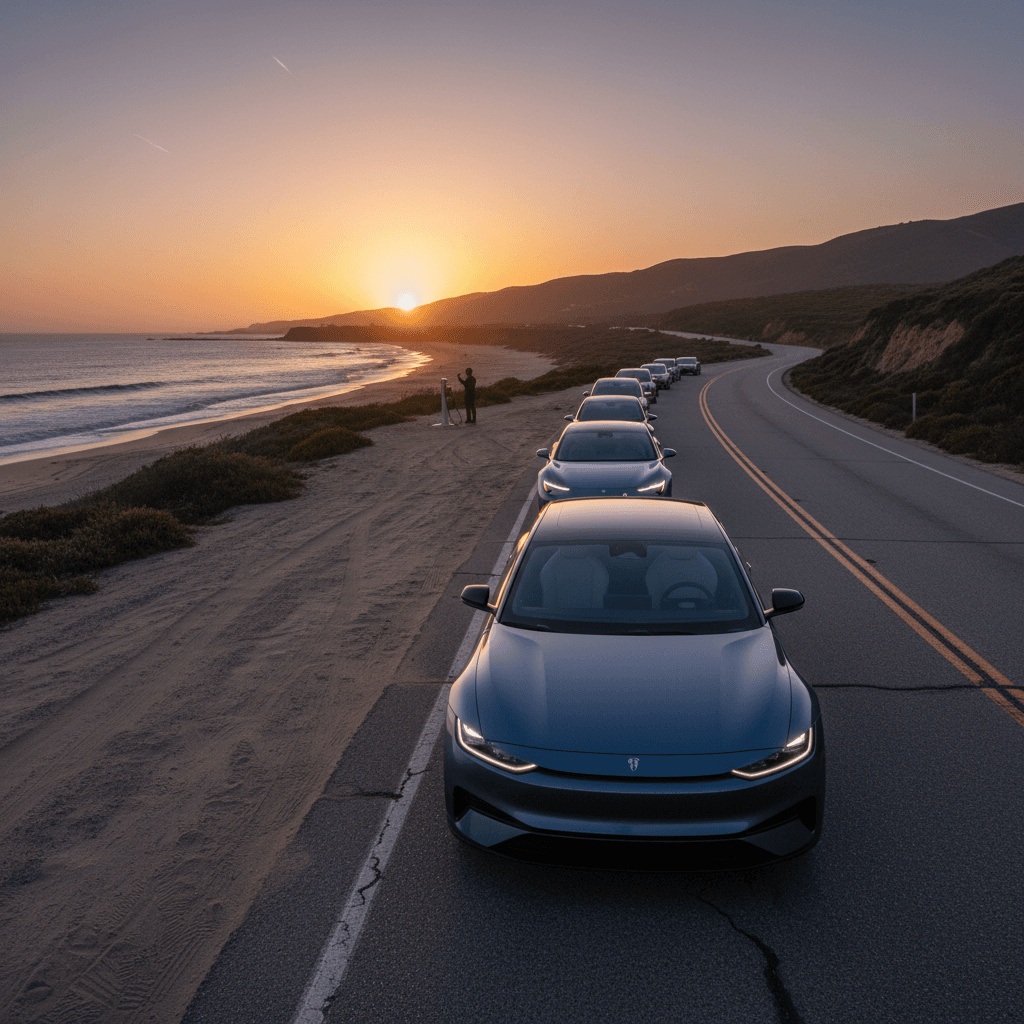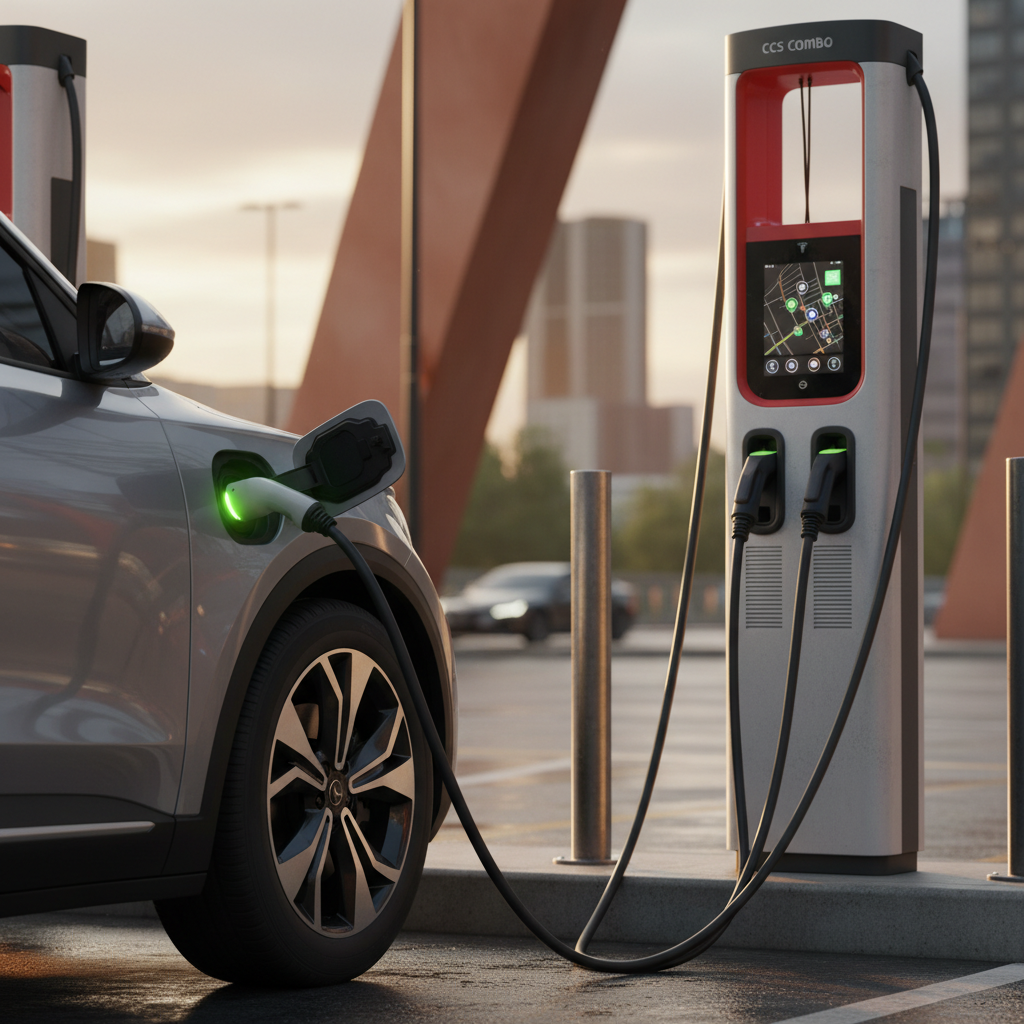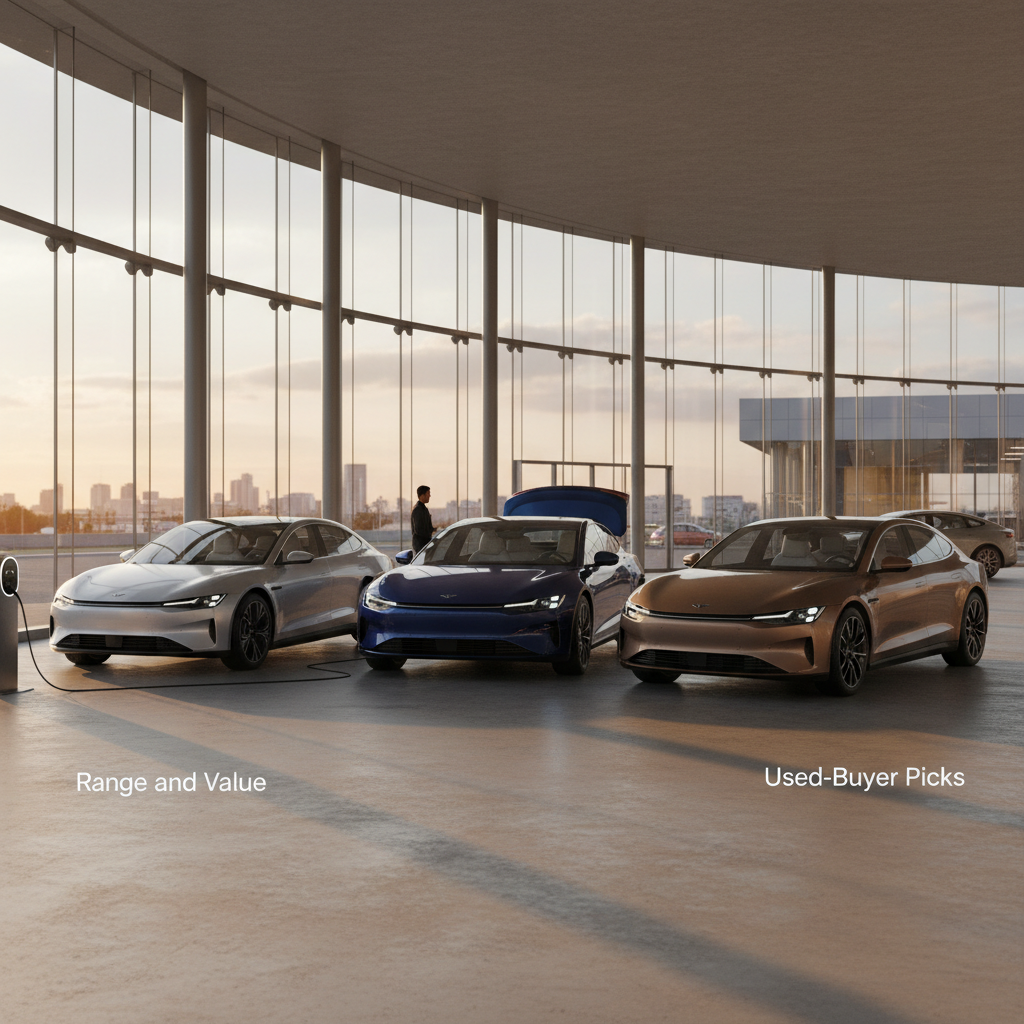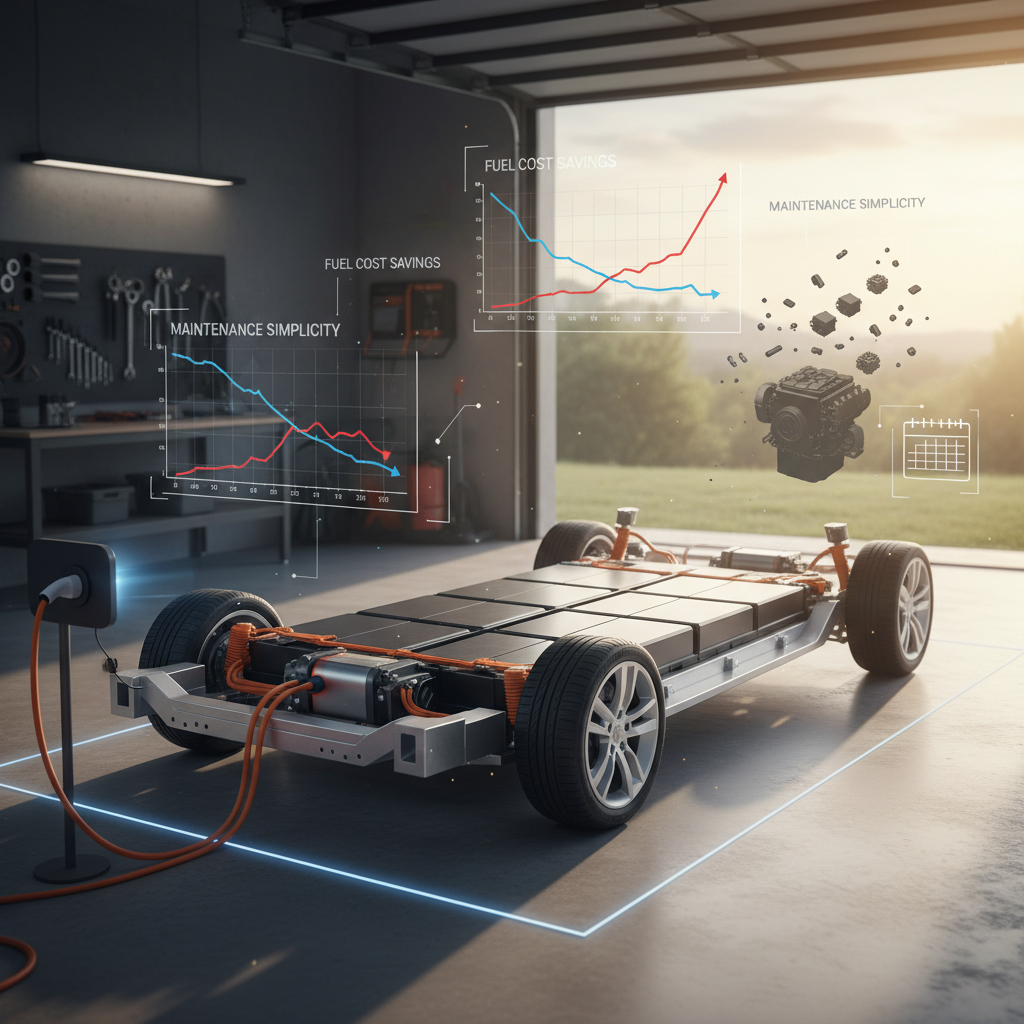If you’re shopping for a long range vehicle in 2025, you’re not alone. Range is still the first question most EV shoppers ask, whether they’re commuting 40 miles a day or planning cross-country road trips. The good news: modern long range electric vehicles can deliver 300–500+ miles of EPA-rated range, and the used market is finally catching up.
Quick definition
What counts as a long range vehicle in 2025?
There’s no single legal definition of a long range vehicle, but in practice you can think in three tiers of modern EV range (all figures are EPA estimates on a full charge):
- Standard range: up to ~260 miles – city commuters, smaller batteries, lower price points.
- Long range: roughly 300–379 miles – the sweet spot for most buyers who want road-trip flexibility without flagship pricing.
- Ultra long range: 380+ miles – flagship sedans, large trucks and SUVs with massive packs and advanced efficiency.
For context, U.S. Department of Energy data shows the median range for 2024 model year EVs reached about 283 miles per charge. That means anything in the low 300s is already above average, and the latest long range vehicles stretch well beyond that.
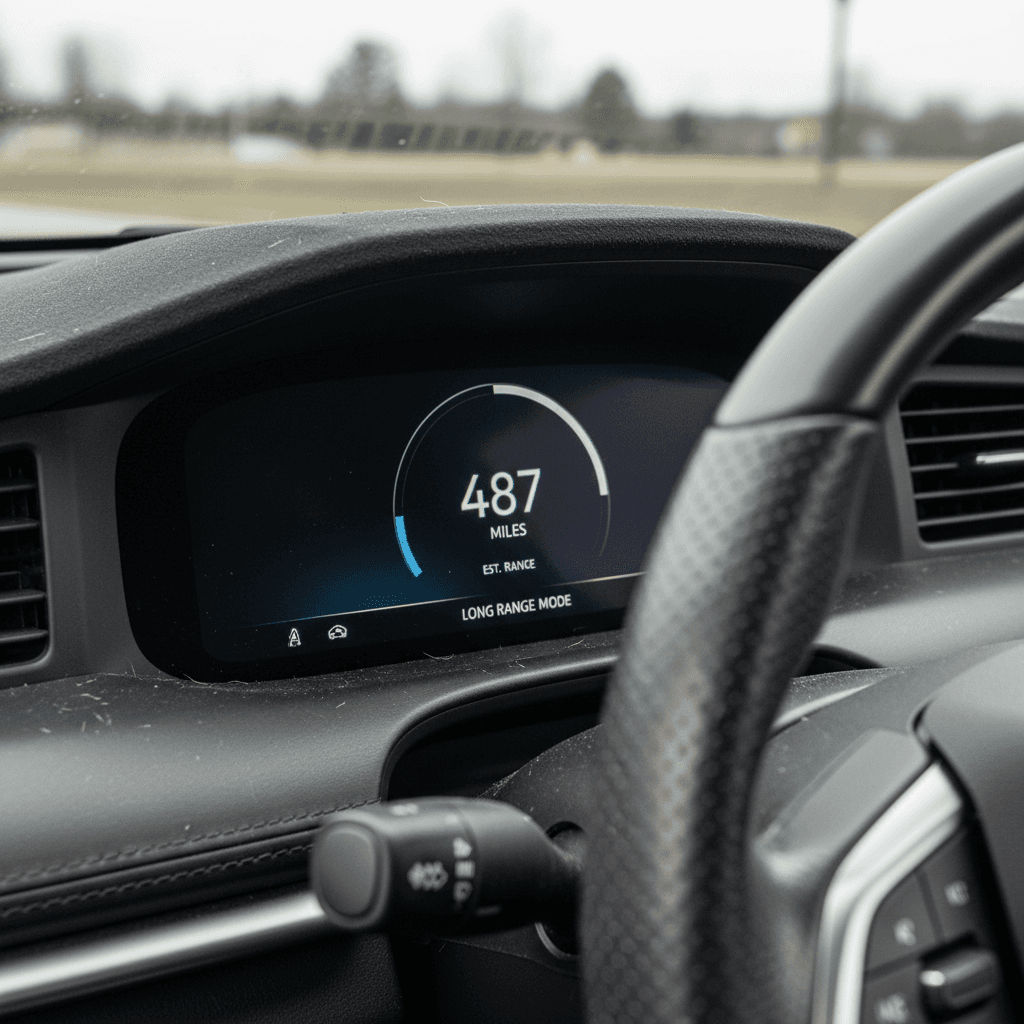
A simple rule of thumb
How far do long range EVs really go on a charge?
Brochure numbers are one thing; real-world range is another. Independent testing programs around the world regularly find popular EVs delivering 5–20% less range than their official ratings under mixed driving conditions. That’s not a scandal, it’s the same gap you see between advertised and real fuel economy in gas cars.
EPA range vs. real-world range
Why your long range vehicle almost never hits the headline number
EPA estimates
EPA tests assume standardized cycles and mild conditions. They’re useful for comparison, but they’re not a guarantee of your everyday range.
Real roads, real traffic
High speeds, hills, HVAC use, and passengers all add load. It’s common to see 10–15% less than your rated range on long highway drives.
Weather & seasons
Cold snaps and heat waves hit batteries hard. Winter highway trips can temporarily knock another 10–20% off range compared with mild weather.
Don’t size range for perfect conditions
Long range vehicles by the numbers
Top long range vehicles in 2025
If sheer distance is your priority, today’s long range vehicles can rival, or surpass, a traditional gas tank. Below is a snapshot of standout 2025 models focused on EPA-rated range, not just performance or luxury.
Representative long range vehicles in 2025
Selected EVs with standout EPA-estimated range. Always confirm final U.S. specs before buying.
| Model (2025) | Type | Approx. EPA Range (mi) | Notable Strength |
|---|---|---|---|
| Lucid Air Grand Touring | Luxury sedan | ~512 | Class-leading range and fast DC charging, but expensive. |
| Chevrolet Silverado EV RST Max Range | Full-size truck | ~460 | One of the longest-range pickups; massive battery pack. |
| Lucid Gravity Grand Touring | 3-row SUV | ~450 | Ultra-long-range family SUV with focus on efficiency. |
| Mercedes-Benz EQS 450+ | Luxury sedan | ~390 | High efficiency; often beats its EPA figure in independent tests. |
| Tesla Model S Long Range | Luxury sedan | ~400 | Mature long range platform with robust fast-charging network access. |
| Tesla Model 3 Long Range | Compact sedan | ~360 | More attainable price point with serious highway range. |
| Hyundai Ioniq 6 Long Range RWD | Mid-size sedan | ~340–360 | Aerodynamic, efficient, and comparatively affordable. |
| Ford Mustang Mach-E Extended Range RWD | Crossover SUV | ~320 | Long range in a practical crossover body, now with broader fast-charger access. |
| Chevrolet Equinox EV LT FWD | Compact SUV | ~319 | Among the most affordable 300+ mile SUVs in the U.S. market. |
Numbers are rounded and may vary by wheel size, trim, and options.
New vs. used: why lists can be misleading
7 real-world factors that shrink EV range
Even the best long range vehicle can feel short-legged if conditions stack up against you. Here are the big culprits that turn a 350-mile rating into a 260-mile reality.
What eats into your long range?
1. Interstate speeds
Above about 65 mph, aerodynamic drag skyrockets. Sit at 75–80 mph on an open interstate and you can easily lose 10–20% of theoretical range.
2. Cold weather
Batteries prefer mild temperatures. Winter driving means more energy for cabin heat and a less efficient pack, especially on the first few miles.
3. Heat waves
Extreme heat forces the battery and cabin cooling systems to work harder. You’ll rarely lose as much as in winter, but range still dips.
4. Frequent fast charging
DC fast charging is safe when used as designed, but relying on it exclusively, especially in heat, can accelerate battery wear over many years.
5. Heavy loads and towing
Extra passengers, cargo, or a trailer all increase energy demand. Long range electric trucks can lose half their rated range with a heavy trailer at highway speeds.
6. Driving style
Aggressive acceleration and hard braking waste energy. Smooth driving and smart use of regenerative braking can recover 5–10% of range.
7. Battery age and health
All lithium-ion packs lose capacity slowly over time. A 5-year-old EV that started at 310 miles might realistically deliver 270–290 if it’s been cared for.
Don’t ignore battery health on used purchases
Sedan vs SUV vs truck: Which long range vehicle fits you?
“Long range” looks different depending on whether you’re hauling kids, towing equipment, or just trying to cover a long commute without plugging in every night. Body style and use case matter as much as the number on the window sticker.
Sedans & hatchbacks
- Best for: Commuters, high-mileage drivers, value-focused shoppers.
- Typically offer the best efficiency and lowest cost per mile.
- Models like Tesla Model 3 Long Range or Hyundai Ioniq 6 deliver 330–360 miles without truck-level pricing.
SUVs & crossovers
- Best for: Families, road trips, cargo flexibility.
- More frontal area means slightly lower efficiency, but batteries are sized to compensate.
- Think Kia EV6, Mustang Mach-E, or Lucid Gravity for long range with real space.
Trucks & large SUVs
- Best for: Towing, work use, outdoor adventures.
- Huge packs can deliver 400+ miles unloaded, but towing can cut range in half.
- Great if you need capability, but overkill for mostly-urban, light-duty use.
Match the vehicle to your lifestyle
Buying a used long range EV: Battery health and pricing
The wave of 2019–2022 long range EVs is now showing up on used lots in force. For many buyers, that’s the sweet spot: modern fast-charging capability, 280–350 miles of original range, and a big discount from new. The tradeoff is uncertainty about battery health and how the previous owner treated the car.
Why a used long range vehicle can be a smart play
If you have the right data on battery health
Lower upfront cost
Depreciation hits EVs just like gas cars. A 3–4-year-old long range EV often costs tens of thousands less than its new equivalent, even when it’s still covered by a battery warranty.
Proven real-world range
By year three, you can see how a specific model performs in real owners’ hands. That history, plus a verified battery report, is more valuable than a glossy new brochure.
How Recharged helps on the used side
Used long range EV checklist
1. Ask for objective battery diagnostics
Look for a third-party or platform-provided report that measures remaining capacity, not just an in-dash guess. This is exactly what the Recharged Score is built to provide.
2. Compare current range to original specs
Find the original EPA range, then compare it to a full-charge estimate today. A modest drop (say 5–12%) after several years is normal; large unexplained drops are a red flag.
3. Review charging history
Frequent DC fast charging isn’t automatically bad, but a history of heavy high-speed charging in hot climates can accelerate degradation. Ask what the prior owner’s routine looked like.
4. Check remaining battery warranty
Most OEMs cover the pack for 8 years or 100,000–150,000 miles against excessive capacity loss. If you’re buying in year six or seven, that coverage matters.
5. Inspect tires and brakes
Uneven tire wear or neglected maintenance can hint at hard use. Long range vehicles with big torque can be tough on rubber if driven aggressively.
6. Price in future range needs
If you already find yourself saying "I wish it went a bit further," assume your needs will grow. It’s better to buy a little more range than you need than less.
Planning trips and charging with a long range vehicle
The real magic of a long range vehicle isn’t just the big number on a spec sheet; it’s how easy it makes your life between charges. Longer range usually means fewer stops, more flexibility about where you charge, and less day-to-day planning.
Daily driving strategy
- Install or use Level 2 home charging if you can. Waking up with 80–90% charge every morning makes a 300+ mile EV feel limitless.
- For apartment dwellers, combine workplace charging and reliable public Level 2 chargers with your long range pack.
- Stay between about 10% and 80–90% state-of-charge for faster charging and long battery life when possible.
Road trip strategy
- Use planning apps to map fast chargers roughly every 120–180 miles, well inside your maximum range.
- Plan meals and breaks at charging locations so downtime feels natural.
- On high-power DC fast chargers, it’s often faster overall to charge from about 10% up to 60–70% and drive, rather than sit to reach 100%.
Think in hours, not miles
How much range do you actually need?
“As much as possible” sounds good, but you pay for big batteries in price, weight, and sometimes charging speed. The right long range vehicle covers your regular routine with a comfortable buffer, without locking you into more vehicle than you’ll ever use.
Right-sized range by driver type
Use these ballpark targets as a starting point
Urban & suburban commuter
Daily driving: 20–60 miles.
Suggested range: ~260–320 miles EPA. That gives you multiple days between charges and easy weekend trips.
Frequent road tripper
Daily driving: varies, but frequent interstates.
Suggested range: ~320–400 miles EPA, plus strong fast-charging capability.
Towers & haulers
Daily driving: may be modest, but towing days are intense.
Suggested range: 350+ miles EPA and a towing-focused EV truck or SUV, plus careful trip planning.
More isn’t always better
Frequently asked questions about long range vehicles
Long range vehicle FAQ
Bottom line: Choosing the right long range vehicle
A long range vehicle in 2025 isn’t just a status symbol, it’s a practical tool that can replace a gas car even for heavy drivers, road-trippers, and many towers. The key is to buy for how you actually live: your longest regular trips, your access to home or workplace charging, and how much you’re willing to pay upfront for the convenience of fewer stops.
If you’re going new, focus on range plus charging speed, not just the highest number you see in an ad. If you’re going used, make battery health your first question and insist on transparent diagnostics like the Recharged Score. With the right information, a long range EV can give you years of low-cost, low-drama miles, and the confidence to point the nose toward the horizon without constantly watching the battery gauge.
Ready to explore options? Browse long range EVs, compare verified battery health, and even get pre-qualified for financing with no impact on your credit directly through Recharged. The era of long range electric driving has arrived; now it’s about finding the one that fits you best.
